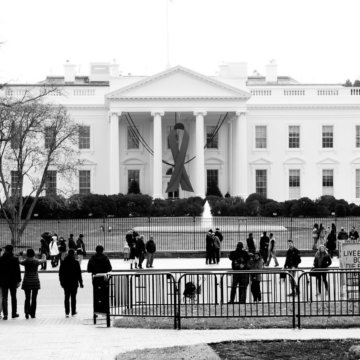- About
- Topics
- Picks
- Audio
- Story
- In-Depth
- Opinion
- News
- Donate
-
Signup for our newsletterOur Editors' Best Picks.Send
Read, Debate: Engage.
World Aids Day is a timely reminder that bringing the epidemic to a halt is possible, but the clock is ticking.
Last month UNAIDS released a report which said that there are only five more years to break Aids, otherwise we risk it rebounding with a higher rate of infections.
A failure to act now will mean a lost opportunity to end Aids for good. But if we can make enough of an effort in the next five years, nearly 28 million new infections and 21 million deaths will be prevented, and Aids could be eradicated by the year 2030.
So what can be done?
In order to meet the targets, 90% of people living with HIV need to know they have the virus - this is made possible through better testing systems.
As well as this, 90% of sufferers need to be on antiretroviral medication and 90% receiving treatment need it to be working fully, making them much less likely to pass the virus to anyone else.
Here, funding is critical - and the Guardian has a piece today about the importance of the private sector in wiping out Aids.
$35 billion will be needed by 2020 to cover Aids cases across the world. If this 2020 target is met, the need for further funding will decrease, easing pressure.
Combating Aids is a key issue of our time. But it will take all types of humanitarians to make it happen.
